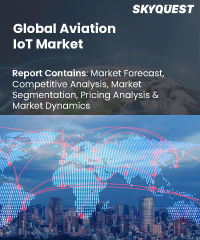
Report ID: SQMIG45A2168

Report ID:
SQMIG45A2168 |
Region:
Global |
Published Date: February, 2024
Pages:
157
|
Tables:
64 |
Figures:
75
The Global Aviation IoT Market is highly competitive, driven by the continuous advancements in IoT technologies and the growing demand for innovative solutions in the aviation industry. Key players in this market are striving to expand their product offerings, enhance their technological capabilities, and secure strategic partnerships to gain a competitive edge. Established aviation technology companies, IoT solution providers, and aerospace manufacturers are at the forefront of shaping the market landscape. The competitive landscape is further influenced by the strategic collaborations and partnerships between IoT solution providers and aviation stakeholders. Airlines and airports are forming alliances with technology companies to co-develop IoT solutions that address the unique challenges of the aviation industry. Moreover, the integration of IoT technologies with other cutting-edge technologies, such as Artificial Intelligence (AI) and blockchain, is expected to shape the competitive landscape and pave the way for innovative applications in the aviation IoT market.
Aviation IoT Market Top Player’s Company Profiles
Aviation IoT Market
Our industry expert will work with you to provide you with customized data in a short amount of time.
REQUEST FREE CUSTOMIZATIONWant to customize this report? This report can be personalized according to your needs. Our analysts and industry experts will work directly with you to understand your requirements and provide you with customized data in a short amount of time. We offer $1000 worth of FREE customization at the time of purchase.

Report ID: SQMIG45A2168